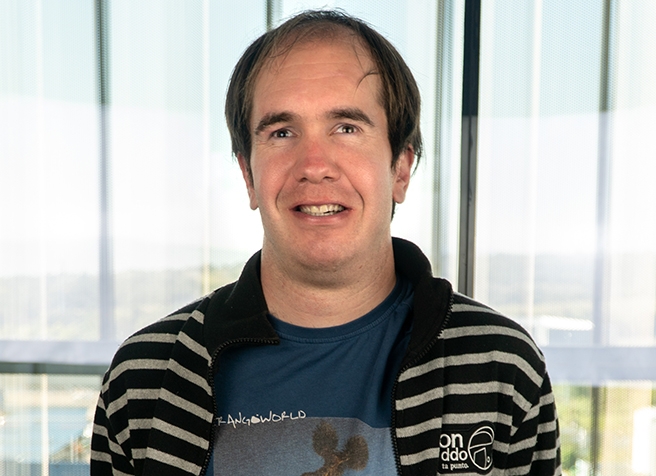
Dr. Oier Lakuntza studied Chemistry (2007) at the University of Basque Country and continued his career studying for a PhD in Theoretical and Computational Chemistry with Prof. Jesus Ugalde as supervisor. On the 25th of September of 2012, he defended his PhD entitled “Activation of methane by group 10 hydride hydroxy/sulphydride metal cations”, obtaining the qualification of cum laude. In January of 2014, he joined the group of Feliu Maseras in ICIQ, as a postdoctoral researcher, where he worked on new descriptors for metal/ligand interaction, using statistical methods. In January 2017 he obtained a Spanish Ministry Juan de la Cierva grant, with CIC energiGUNE as hosting institution. He is currently working as a Postdoctoral researcher at CIC energiGUNE.
Dr. Oier Lakuntza applies first-principles density functional theory calculations to elucidate the atomic and electronic structures of complex energy storage materials, even for compounds that are yet to be synthesized. Generic atomic structures and basic input information of different parent materials of study are retrieved from open-access materials databases such as the Materials Project. Then supercells of different sizes, considering a broad range of different ion substitution arrangements, are generated using the Phyton Materials Genomic (pymatgen) or similar computational packages. This typically involves the implementation of data-mining Python and Fortran codes to automatically generate all of the necessary input files and analyze the results. Current computations of compounds of interest include a diverse range of highly relevant new families of electroactive materials for the next generation of Li-ion and Na-ion rechargeable batteries, including quaternary Li-Ni-M-Al-Mg-O (M = Mn, Fe, Ti, Ni) layered oxides and Na-M-PO4 (M = Fe, Mn, Co, Ni) olivines. Dr. Lakuntza has already contributed to several key findings in these research lines (see, e.g., J. Mater. Chem. A, 2019, 7, 21812 and J. Mater. Chem. A, 2019, 7,14169).

If you want to know the latest trends in energy storage and new developments in research, subscribe.

If you want to join a top-level team, collaborate with specialists in multiple disciplines or tell us about your concerns, don't think twice...